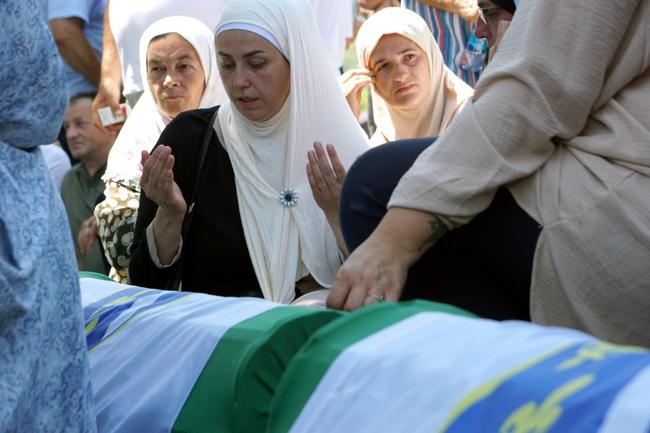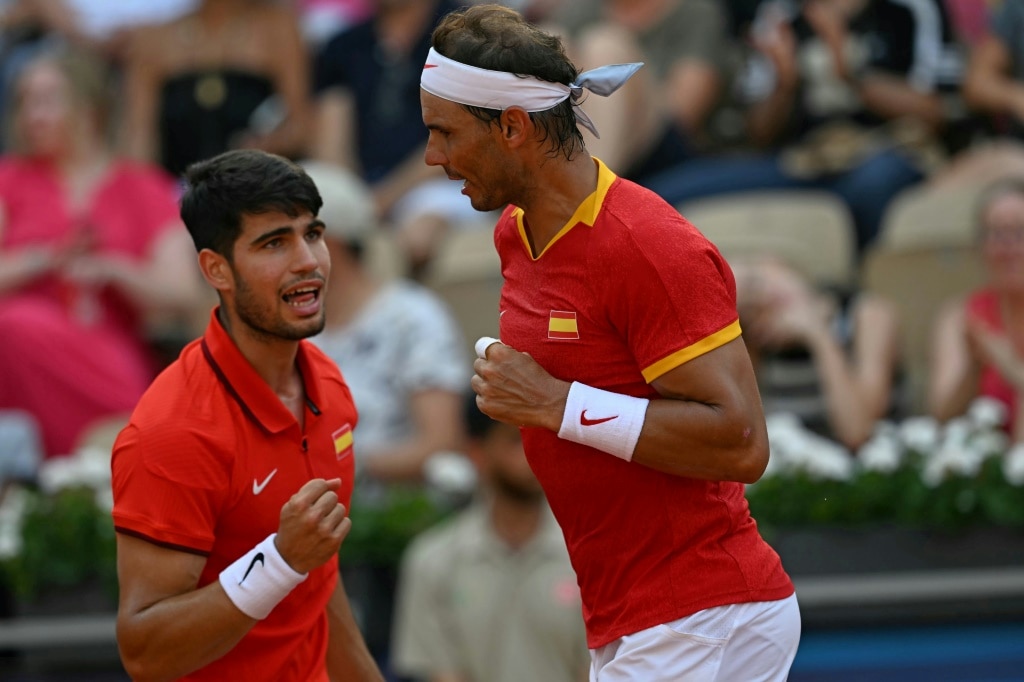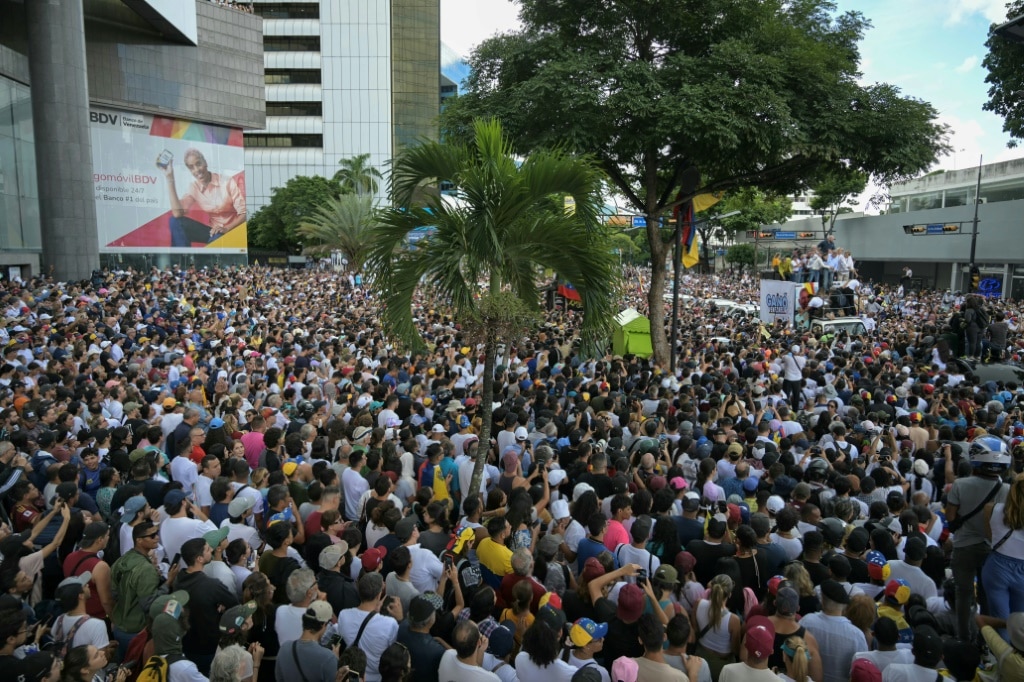Bosnian Muslims commemorate Srebrenica genocide
Bosnian Muslims commemorate Srebrenica genocide

Thousands crowded into the Bosnian town of Srebrenica on Thursday to remember the 1995 massacre of Bosnian Muslims, families of victims in tears, some burying loved ones whose remains were only recently discovered.
On July 11, 1995, Bosnian Serb forces captured the eastern Bosnian town -- which was then a UN-protected enclave -- and killed 8,000 Muslim men and boys in the following days.
It was the worst massacre in Europe since World War II and two international courts ruled it was genocide.
With tears rolling down her face, Kada Sikovic was among those burying relatives on Thursday.
Fragments of chin bone belonging to her husband Musan had been uncovered in 2010, but she was not ready to bury him until more remains were found last year.
"Thank God we found some of his bones," she told AFP.
After a joint prayer, the remains of 14 victims of the bloodshed were buried under white tombstones alongside 6,751 others at a memorial cemetery in Potocari, just outside Srebrenica.
"At least we know where we will come to pray for him," said Alen Jasarevic, who was burying the remains of his uncle discovered in 2011.
Victims' remains were found in 87 mass graves -- to cover up their crimes, Bosnian Serb forces moved the bodies of the victims to so-called secondary mass graves.
A spokeswoman for Bosnia's institute for missing persons told AFP that they were still looking for around 1,000 people.
In May, the UN General Assembly adopted a resolution declaring July 11 the International Day of Reflection and Commemoration of the 1995 Genocide in Srebrenica.
- 'Show respect' -
The resolution was fiercly opposed by Serbia and Bosnian Serbs, who continue to play down the crime.
Bosnian Serb leader Milorad Dodik has repeatedly denied a genocide occurred and says his administration will not recognise the resolution.
But Dodik expressed sympathy to the families of the victims on Thursday.
"Regardless of our differences, we must show respect for the pain and suffering that has befallen many people of all nations and religions in Bosnia and Herzegovina," Dodik said on X.
A UN court sentenced Bosnian Serb wartime political leader Radovan Karadzic and his army chief Ratko Mladic to life in prison for war crimes including the Srebrenica genocide.
Bosnia's 1992-1995 war between its Croats, Muslims and Serbs claimed approximately 100,000 lives.
Nearly three decades after the war ended, the Balkan nation remains deeply divided along ethnic lines.
- July is 'hard' -
Mevlida Hasanovic, praying under the scorching sun at the grave of her cousin, recalled how she lost a dozen male relatives in the massacre.
Her husband's remains were buried twice as they were found in two different mass graves.
"It's hard when July comes. They ended up like this only because they had a (Muslim) name," she said.
The 54-year-old is still waiting for "at least one bone" of a brother to be found so she can bury him, she told AFP.
"Their souls know that we are here next to them. When I get here, I feel as if we just parted ways in Srebrenica," she said.
On Wednesday, the European Union, which Bosnia aspires to join, called the atrocity "one of the darkest moments in modern European history".
"There is no place amongst us for those who deny genocide, attempt to rewrite history, and glorify war criminals," EU foreign policy chief Josep Borrell and the bloc's enlargement commissioner Oliver Varhelyi said in a joint statement.
rus/ljv/jxb
Originally published as Bosnian Muslims commemorate Srebrenica genocide


